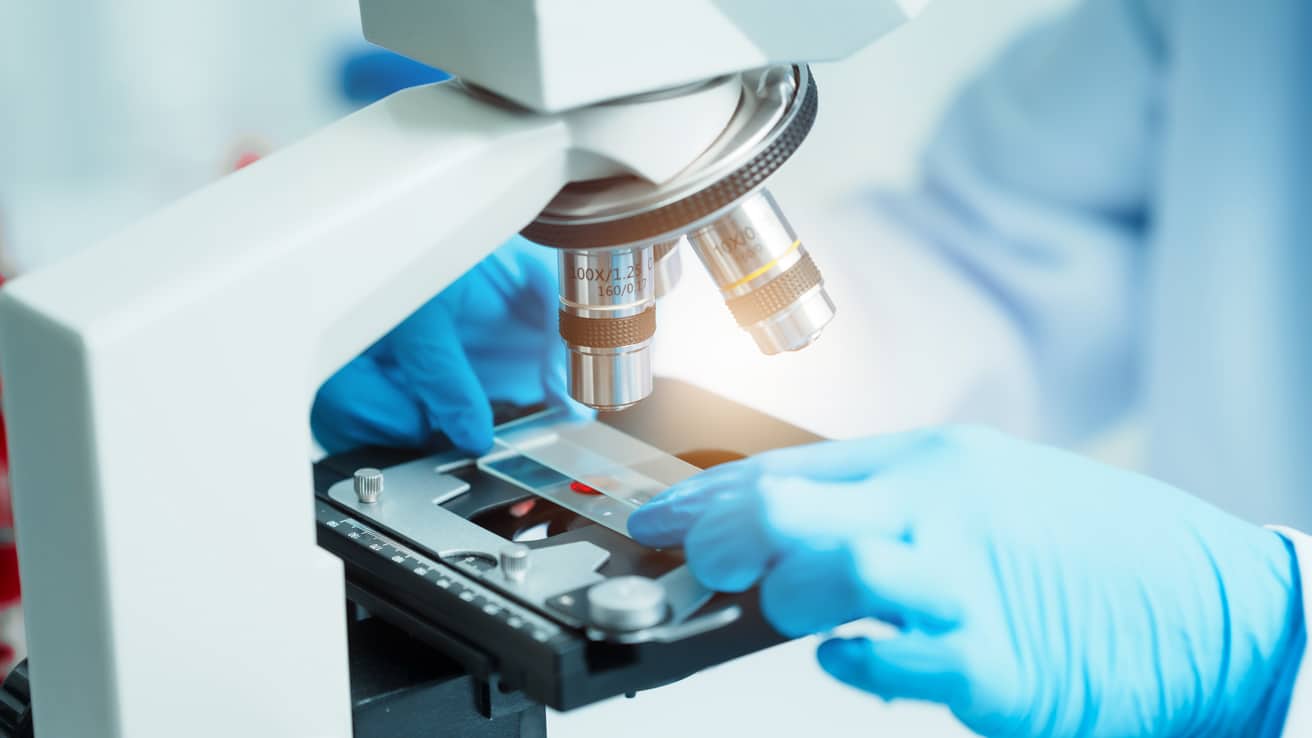Four reasons why MLTs should pursue a MLS, Bachelor of Science
Earn your bachelor's degree to become a Medical Laboratory Scientist (MLS) and unlock opportunities for career advancement and higher earning potential.

As a Medical Laboratory Technician (MLT), you’ve already established a solid foundation in medical laboratory science. By advancing your education and earning a bachelor’s degree to become a Medical Laboratory Scientist also known as a Clinical Laboratory Scientist (CLS), you can take on greater responsibility and autonomy in the laboratory, improve your career trajectory, increase your earning potential or even use this degree as a pathway to pursue a professional degree.
The growing demand MLS and CLS professionals
The demand for professionals in medical laboratory science is on the rise. An aging population is leading to increased medical testing, while advances in diagnostic technology and a heightened focus on preventive healthcare are making laboratory services more essential than ever before. The U.S. Bureau of Labor Statistics (BLS) projects employment of clinical laboratory technologists and technicians to grow by about 5% from 2023 to 2033.
This growth highlights the increasing need for MLS-qualified professionals who can meet the demand for complex diagnostic testing and contribute to advancements in health care.
Benefits of becoming a Medical Laboratory Scientist
Pursuing a bachelor’s degree offers several distinct benefits that will improve your career:
1. Expanded job responsibilities with increased autonomy: The difference between an MLT and MLS
As an MLS, you’ll gain greater autonomy in the lab, taking on advanced responsibilities that go beyond your role as an MLT. Your duties will include performing highly complex tests, ensuring the accuracy and quality of lab services and equipment, and supervising junior technicians. Within this elevated role, you’ll develop the expertise to tackle challenges, make critical decisions, and play a key part in diagnosing and treating diseases. This expanded authority empowers you to contribute more actively to high-quality patient care and the smooth operation of laboratory services.
2. Career advancement
A bachelor’s degree can broaden your employment opportunities beyond the clinical setting. MLS graduates often find roles in research labs, academic institutions, government health agencies, biotechnology firms, and even in diagnostic equipment sales or technical support. With a bachelor’s degree and MLS certification, you’ll be qualified for leadership roles and specialized positions that are typically out of reach as an MLT. This credential not only validates your advanced knowledge and skills but also demonstrates your commitment to professionalism and excellence in the field.
3. Higher earnings
MLS salaries have been reported to be higher than MLTs salaries. According to data from the credentialing body, The American Society for Clinical Pathology (ASCP) 2023 wage survey, the average annual wage for a Medical and Clinical Laboratory Scientist with a bachelor’s degree in a staff position was between $76,000- $124,000. Beyond the staff role, MLS individuals show career progression opportunities to lead, supervisor and director levels. In comparison, the average annual wage for Medical and Clinical Laboratory Technicians was $57,000 – $63,000 encompassing staff, lead and supervisor roles, none were reported at the director level. This wage gap reflects the advanced skills and responsibilities that come with an MLS degree and certification.

4. Pathway to advanced degrees
A degree focused on medical laboratory science offers not only immediate career benefits but also serves as a strong foundation for further educational pursuits in medicine, research or academia. Courses in microbiology, clinical chemistry, immunology and hematology will provide you with a deep understanding of human biology, disease mechanisms and diagnostic tools. This core scientific knowledge is essential for those who aspire to pursue medicine or research-based degrees, such as a Master of Science (MS), Doctor of Medicine (MD) or Doctor of Philosophy (Ph.D.) in biomedical sciences.
Why choose Ohio State’s online MLT to MLS program?
Ohio State’s online MLT to MLS completion program is highly ranked and uniquely designed to cater to working MLTs. This program allows you to fully leverage the clinical experience you already have as the clinical rotation requirement towards your MLS certification eligibility. With flexible asynchronous learning, you can continue your education while working full-time. The program emphasizes practical knowledge that translates directly into the laboratory, ensuring you gain both theoretical understanding and applicable skills. By completing this online degree, you’ll be prepared to sit for the MLS certification exam through Route 2 eligibility.
At Ohio State, you will be joining a program with a strong history of student success:
- 100% of Ohio State medical laboratory science students over the past 3 years have passed the ASCP Board of Registry Certification Exam within a year of graduation, scoring above the national average in all subject areas.
- Learn online from the same NAACLS-accredited faculty who teach on campus, offering you the flexibility to complete your bachelor’s degree from anywhere.
- 100% of graduating students have secured employment or graduate program placement.
By earning a bachelor’s degree and completing your MLS certification, you are investing in your career growth and positioning yourself for a greater role in advancing patient care. Whether you want to take on leadership roles, increase your earning potential, or pursue graduate school, an MLS degree can help you achieve those goals.
Take the next step
Discover the curriculum, faculty, and tuition details for the MLT to Medical Laboratory Science (MLS) Bachelor of Science program. Connect with an experienced Enrollment Advisor to get your questions answered and receive personalized guidance to ensure a successful application.
Related Posts
Related Posts

MLT to Medical Laboratory Science, Bachelor of Science

Choosing the best MLT to MLS online program: Why Ohio State stands out

